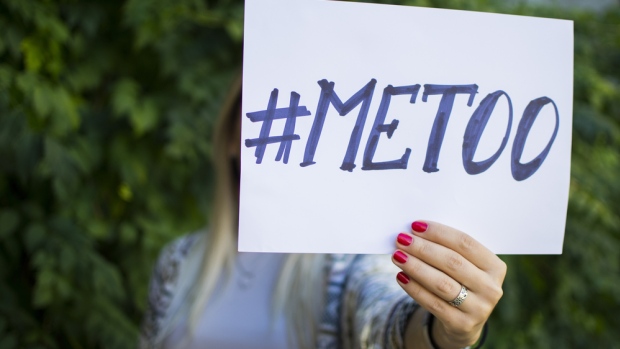#MeToo: Beyond the Hashtag
November 8, 2017
“I just have one question,” my vice principal said. “Why didn’t you fight back? Why didn’t you kick him in the balls? That’s what I would have done.”
That’s the first thing the principal said to me after reading my written statement.
She did not comment on the actions of the student athlete who had physically harassed me multiple times throughout my freshman year of high school. She said nothing about the fact that another faculty member had witnessed one of the incidents, but did nothing.
“What took you so long to say something?” my principal asked in follow up to her first set of questions.
I don’t remember answering any of her questions, but I remember thinking I should not have said anything.
I remember feeling hopeless and stupid — hopeless because I knew nothing would change, and stupid for thinking that coming forward would make things better.
I was right about one thing— nothing got better. My harasser received a slap on the wrist, and I changed schools. But, I was not stupid.
Stepping out and using my voice was brave. I was brave, much like the 30 million women who shared their stories through #metoo on social media.
On Sunday, Oct. 15, Alyssa Milano called social media users to action by tweeting, “If all the women who have been sexually harassed or assaulted wrote ‘Me too’ as a status, we might give people a sense of the magnitude of the problem.”
Within days, millions of men and women shared their stories via social media.
Author Najwa Zebian tweeted, “I was blamed for it. I was told not to talk about it. I was told that it wasn’t that bad. I was told to get over it.”
The voice of victims who had been silenced in the past are now being heard. #MeToo proved that truth has a power, and change needs to be made.
Activist Nick Jack Pappas tweeted, “Men, don’t say you have a mother, a sister, a daughter… Say you have a father, a brother, a son who can do better. We all can.”
We all can do better. We all need to do better.
A social change will stem from how the world decides to handle these victim stories.
In a Huffington post article, Angelina Chapin wrote, “Women can turn the whole internet into a list of ‘Me toos,’ but it won’t make a difference until men ― all men ― acknowledge how they perpetuate misogyny and commit to making a change.”
The movement has to go beyond the internet and lead to real world change and policies that prevent sexual harassment, policies that prevent the silencing of victims.
The Tacoma Washington News Tribune editorial board writes, “Movements ultimately fail if all they do is exhaust some righteous indignation so that people in power can return to abusive business as usual.”
#MeToo cannot be deemed a success if all it does is create a storm that can later be ignored.

